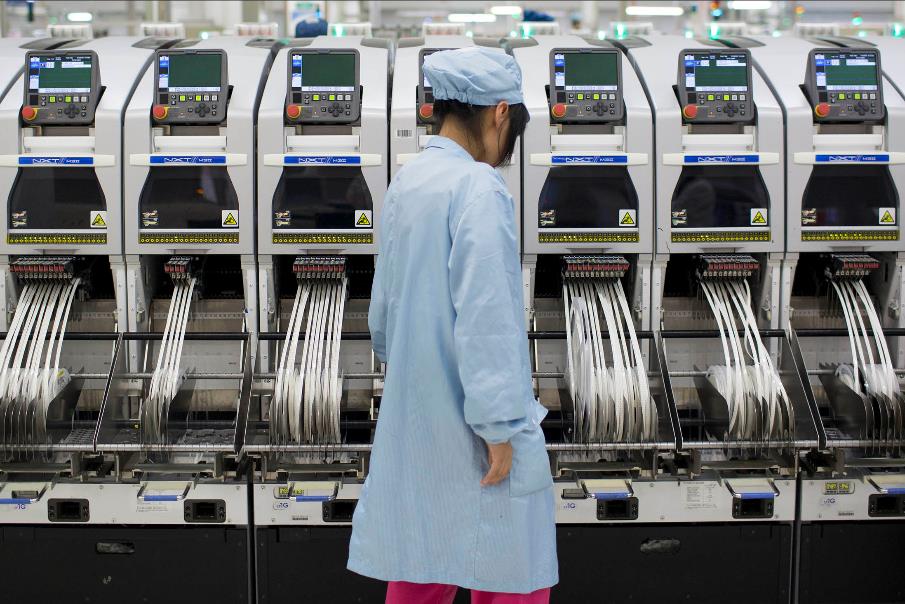
Bloomberg China's economy remains steady this month even amid efforts to cool property markets, according to some of the earliest private economic indicators. A manufacturing gauge based on satellite imagery jumped to a five-year high, large companies are more confident, and steel manufacturers are booking more orders after a holiday blip in October. Meanwhile, small and medium-sized firms are less optimistic about the future because of real estate curbs and cuts to trim excess capacity. The world's second-largest economy has so far proved doubters wrong this year, lifted by record-low benchmark interest rates the People's Bank of China has kept in place since late 2015. Now policy makers face the tricky task of cooling property prices without hurting growth. The challenge is made even more difficult by threatened trade sanctions from U.S. President-elect Donald Trump and the yuan trading near an eight-year low.
- Financial Times reports that when leaders from throughout the Asia-Pacific region met in Lima last weekend, one topic dominated the gathering: Donald Trump's threat to ditch the 12-nation Trans-Pacific Partnership (TPP)...But while Mr Trump could do serious damage with another of his threats — huge import tariffs on China and Mexico — history suggests the importance of bilateral or regional deals in shaping world trade is often overstated. Nor does it appear that trade agreements are necessarily a cause rather than a consequence of geopolitical influence...If the US decides to draw back from its security role in the region, it would undermine the country's prestige as the "indispensable nation". But that is almost entirely unconnected with whether a particular trade deal succeeds or not. There are many other worries about Mr Trump's trade policies — notably his calls for tariffs that could set off destructive trade wars. But the history of trade pacts as an instrument of foreign policy suggests that the US's role in Asia —and Chinese ambitions to replace it — will be determined by far more than just TPP.
- 2016-11-23 China Has Warned of Retaliation if U.S. Levies Tariffs, Commerce Secretary Says
- 2016-11-22 China Touts Its Own Trade Pact as U.S.-Backed One Withers
- 2016-11-21 Recent Developments Surrounding the South China Sea
- 2016-11-20 Xi Meets With Obama, Says U.S. and China at 'Hinge' Moment
- 2016-11-18 China Presses Tech Firms to Police the Internet
- 2016-11-17 Panel Recommends Banning Chinese State Companies From U.S. Acquisitions
- 2016-11-16 In Trump’s China, Industrial Subsidies Loom Large
- 2016-11-15 U.S. Workers to Lose in China Trade War
- 2016-11-14 Trump and Chinese President Hold Cordial First Phone Call
- 2016-11-13 Chinese Coaches Hone Their Skills in America
- Bloomberg China November Early Indicators Show Stability
- Reuters China sends environmental inspection teams to seven more regions
- Reuters Singapore says it's trying to free shipment of troop carriers held in Hong...
- Wall Street Journal Disconnect: Traders Wait, and Wait, for Shenzhen Trading Link
- Wall Street Journal China Struggles to Steady Yuan's Decline
- Reuters China banking regulator wrestles with $2.9 trillion off-balance sheet WMPs
- Reuters China to probe illegal expansion in coal, steel sectors
- Bloomberg China About to Start $35 Billion of Silk Road Plan in Pakistan
- Financial Times China smashes world patent record with 1m filings in a year
- Reuters At least 40 dead, others trapped in China construction collapse
- Reuters China names former finmin Lou Jiwei as head of national pension fund
- Bloomberg China Wants Quick Close on Regional Trade Pact After TPP Dashed
- Bloomberg China's London Property Rush
- Reuters China will focus on deepening reforms regardless of TPP, RCEP direction : ...
- Wall Street Journal Nobody in China Wants a Return to Mao-Era Poverty
- Bloomberg Why Facebook Won't Give Up on China
- The Washington Post Duterte and Trump will dramatically recast US-Philippine ties. But how?
- The Washington Post China rebuffs Trump threat to take steps to win trade edge